I hope everyone had a good month of reading to kick off 2025. I further hope that (1) you’ll find something interesting from my reading list and (2) you’ll share what you read.
Not pictured FICTION:
The Mugger (87th Precinct #2, 1956) Ed McBain
I recently spoke to a friend who’s a former policeman. We discussed all kinds of books, including crime fiction. My friend recommended Ed McBain’s 87th Precinct, a series I’ve dipped into here and there. Having read the first in the series, Cop Hater, I decided to continue the books in order. The Mugger is, as you would think, about the 87th’s attempt to find a man who mugs women, takes a bow, and delivers his name. He should be easy to catch, right? Yet there’s also a murderer running around. Could he also be the mugger? McBain’s series is something of a revolving door of cops and cases, so while one policeman may be the focus of one book, he may be just passing through in the next. I enjoy getting to know the guys in the precinct and their strengths, weaknesses, and shenanigans. As you might imagine from a book written in the 1950s, the language (slang) and cultural moments are quite dated. That’s understandable, but solving the mystery is pretty easy. Still, I plan to take several more journeys to the 87th.
Ghostroots: Stories (2024) 'Pemi Aguda
Aguda’s first collection is both familiar and strange yet filled with wonder. Each tale is set in Lagos, Nigeria, where ordinary events (e.g., a baby’s birth, the struggles of teenagers at school) give way to something unusual, sometimes supernatural, with hints of deep ancestral roots impossible to ignore. While not strictly fantasy or horror, Ghostroots contains elements of both. Seek this one out.
Not pictured NONFICTION:
On Tyranny: Twenty Lessons from the Twentieth Century (2017) Timothy Snyder
Published just after Donald Trump’s first presidential election in 2016, Snyder, a Yale history professor, a British Marshall Scholar, and a permanent fellow at the Institute for Human Services, gives readers a brief look at totalitarian regimes and how they came to power. He also sketches parallels to our current situation. Many readers have lambasted the book for making “surface” connections to where America was in 2017 but they should remember this is a short work with plenty of resources for further investigation if you don’t want to take Snyder’s word at face value. It would be interesting to hear how Snyder might adapt or expand his 20 lessons in 2025.
Dylan Goes Electric: Newport, Seeger, Dylan, and the Night That Split the Sixties (2015) Elijah Wald
My gosh, this was good... If you've only seen the new movie A Complete Unknown, you must read this to understand why Newport was such a monumental event. Wald takes readers through several odysseys, all converging at one pivotal moment at the 1965 Newport Folk Festival, but that one moment is one we’re still affected by today. All the players here were on a certain course: Pete Seeger, Joan Baez, the festival itself, rock, pop, the blues, and folk. When they all met, something had to give. Wald expertly delves into each story and why they mattered then and now. I’ll be seeking out more books by Elijah Wald.
From the photo FICTION:
Mercury (2024) Amy Jo Burns
This drama chronicles the Josephs, a family of roofers living in a small Pennsylvania town. When a teenager named Marley moves into the area, it’s only a matter of time before one of the Joseph brothers expresses an interest in her. Yet Marley could find herself responsible for disrupting their entire household. This is primarily a family drama, but Burns also weaves in a compelling mystery. I enjoyed much of the novel, especially the complex family relationships, but I had one major issue with Marley: There’s no way an 18-year-old could have the foresight, wisdom, and thought processes she displays throughout the book. It’s simply not realistic. I also wish there had been less telling in this book and more showing. As the conclusion approaches, Burns also gives us a long and mostly unnecessary flashback. By this point we know the characters well, and their motivations don’t require explanations. Mercury is equal parts enjoyable and frustrating.
May the Wolf Die (2024) Elizabeth Heider
Nikki Serafino’s beautiful sunset evening aboard her boat is interrupted when she discovers a dead body floating in the bay near the port city of Naples, Italy. Nikki is also in law enforcement, so she’s assigned to work the case with connections to the U.S. Navy. Soon, she discovers another body, this time on dry land, a man assassinated in his parked car, also a man with U.S. military connections. But Nikki’s got her own problems distracting her from her job. It’s hard to believe this is Heider’s first novel. May the Wolf Die is compelling, featuring a believable yet complicated protagonist and a plot that never feels fabricated or routine. I’m surprised this book isn’t talked about more. I hope to change that.
Not a River (2020) Selva Almada (2024 translation by Annie McDermott)
“Enero Rey, standing firm on the boat, stocky and beardless, swollen-bellied, legs astride, stares hard at the surface of the river and waits, revolver in hand.” With an opening like that, it’s practically guaranteed something bad’s going to happen. A hot, muggy day finds Enero, El Negro, and their dead friend’s teenage son Tilo out fishing when Enero hooks a stingray. On land, two teenage sisters appear to be doing typical teenage things, but they may have sinister motives. Throughout this short novel (just over 100 pages), Almada addresses social forces in remote areas, masculinity, sexuality, justice, friendship, betrayal, poverty, nature, and what it means to be human. Not a River is the best novel I’ve read so far in 2025, and I plan to read it again before the year is over. Many thanks to Trevor and Paul from The Mookse and the Gripes podcast for introducing me to this book.
The Empusium: A Health Resort Horror Story (2024) Olga Tokarczuk (translation by Antonia Lloyd-Jones)
Tokarczuk had me at “health resort horror story,” but the characters are just as compelling as the premise: In 1913, a Polish student with tuberculosis named Mieczysław arrives at a health resort in western Poland, where he listens to other young men discussing the possibility of war, literature, philosophy, and women. Amid the men’s treatments and discussions, something strange and disturbing begins to happen. The Empusium won’t be for everyone, but I found it intriguing.
The Moon is Down (1942) John Steinbeck
In discussions of John Steinbeck, you seldom hear mention of The Moon is Down. Written as propaganda during World War II, the story involves enemy troops from an unnamed country invading a small coastal town in Northern Europe and demanding obedience during the occupation. This good vs. evil story seems simple yet never simplistic. Oddly enough, the book was embraced (if not treasured) in other countries more than in America. It’s a quick read, one you should not miss.
Billy Budd and Other Stories (1986, Penguin Classics edition) Herman Melville
Like many, I struggled through Moby Dick in college, never intending to read any more Melville, not until I ran across the short story “Mr. Clubb and Mr. Cuff” in Peter Straub’s collection Magic Terror last year. Discovering that Straub’s story is loosely based on “Bartleby” (1853), I was determined to revisit Melville. I found a used copy of Billy Budd and Other Stories (including “Bartleby”) and could not stop reading. Unlike “Bartleby,” most of the collection’s other tales contain some nautical elements, which I was surprised I enjoyed. I was also surprised I latched onto Melville’s style and use of language. Don’t be surprised if you see more Melville from me in the future.
From the photo NONFICTION:
Gentle and Lowly: The Heart of Christ for Sinners and Sufferers (2020) Dane C. Ortlund
So many Christians believe they’re forgiven yet fear that God looks at them with disappointment, frustration, and maybe even anger when they’ve stumbled. It may be surprising to learn that Jesus describes himself as “gentle and lowly in heart,” not having an attitude of, “Well, they’ve messed up again…” This book reminds believers that we sometimes think God is too small and too angry.
The Great Dechurching: Who’s Leaving, Why Are They Going, and What Will It Take to Bring Them Back? (2023) Jim Davis, Michael Graham, Ryan P. Burge
You’re probably not surprised to learn that people have been leaving the church (from nearly all denominations) in droves. Part of that has to do with COVID and people who now prefer to worship online, but the pandemic brought to the surface things that were already simmering. Although the book has some good strategies for moving forward, the authors fill pages with too many charts of statistics, some of which are unclear in their focus and even appear to contradict each other. The book’s overuse of fictional vignettes, such as “Jim grew up in a Protestant home, but grew disgruntled with the church over…” (just something I made up), get tiresome. Still, the second half of the book is helpful.
The comments are open, so please share what you read during the first month of 2025.

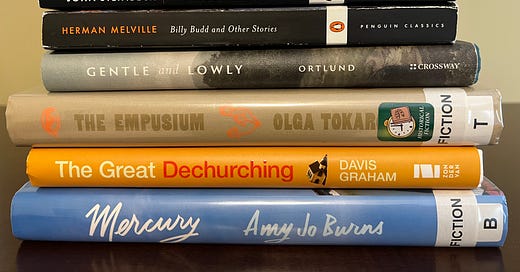



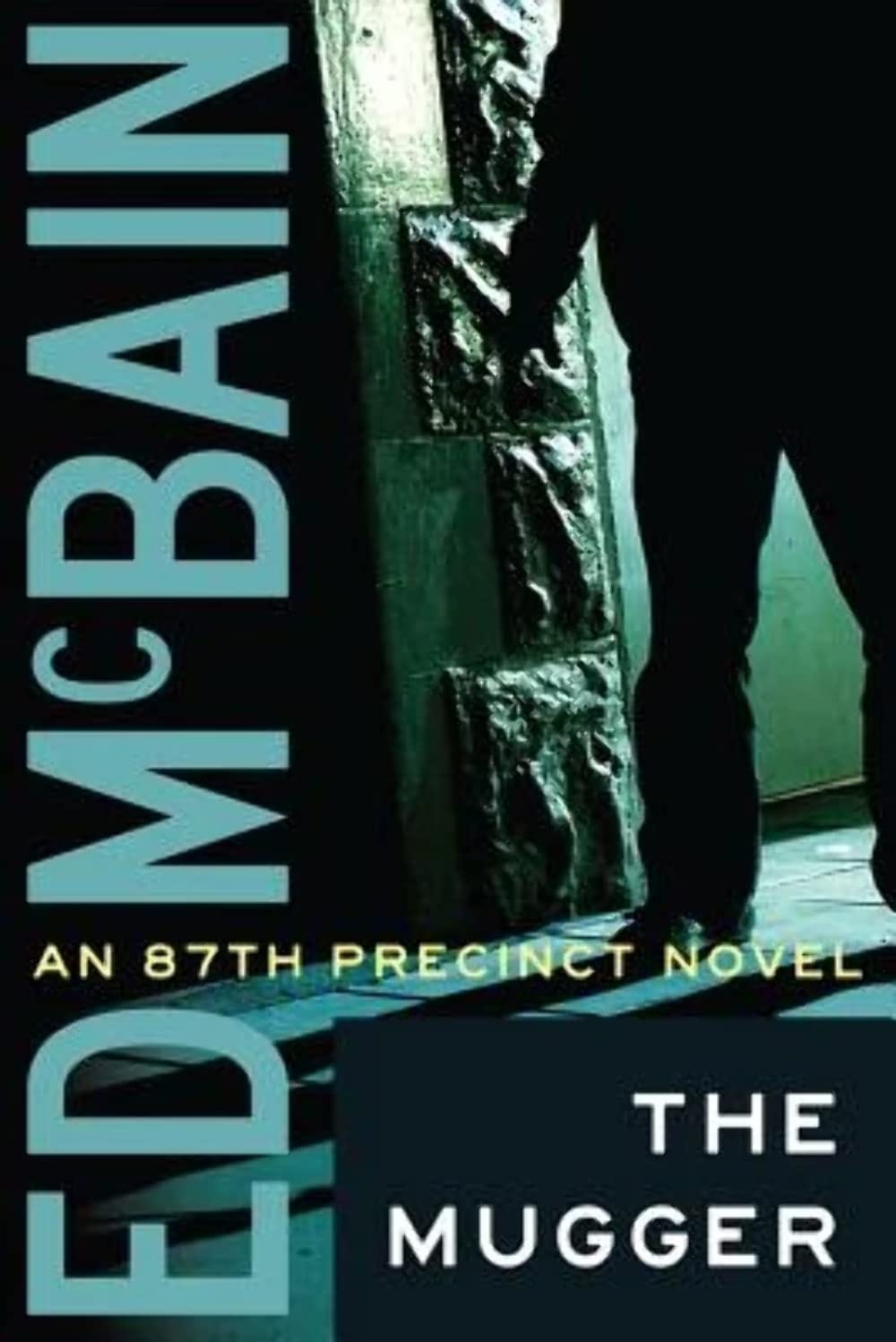
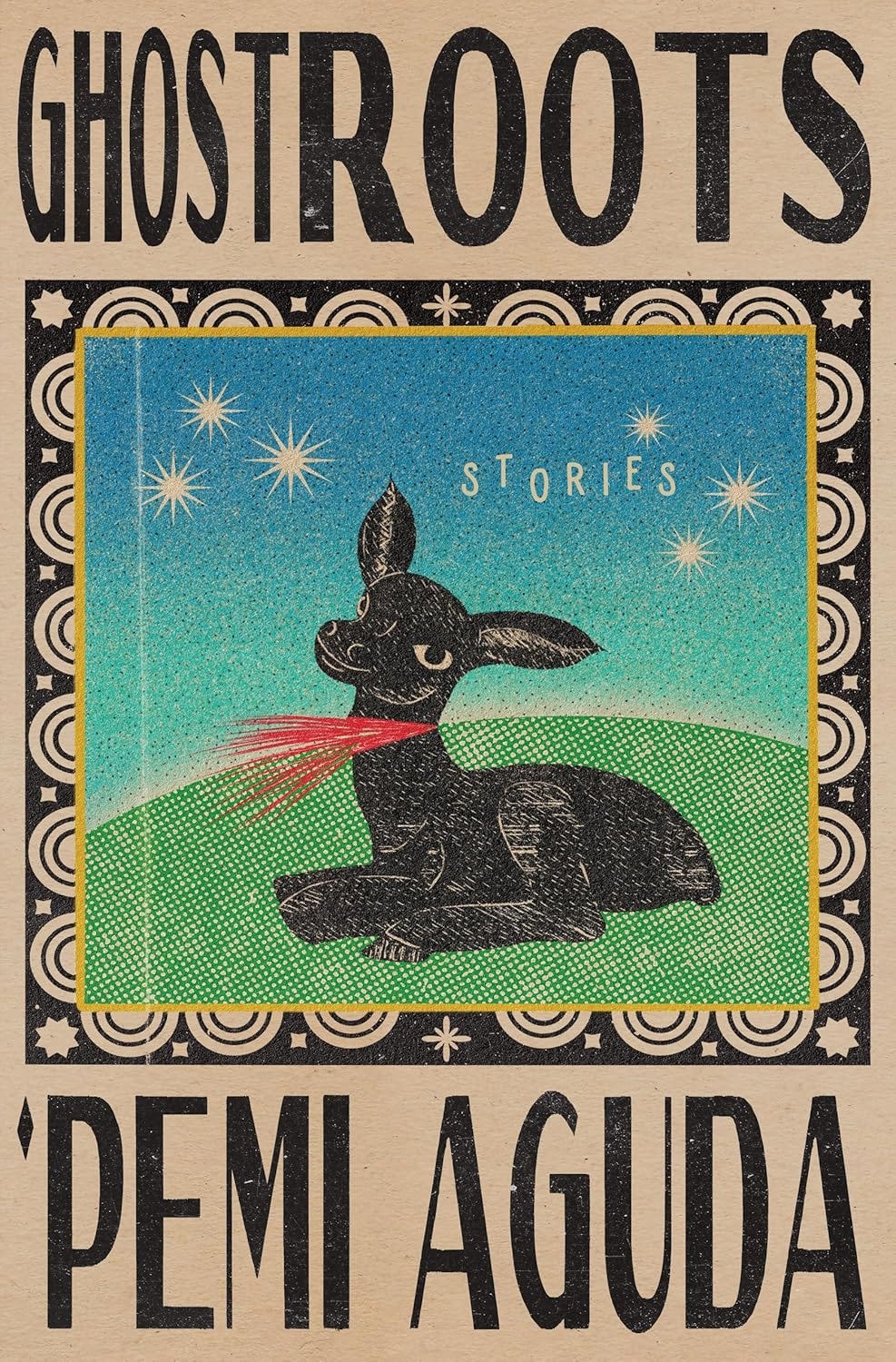
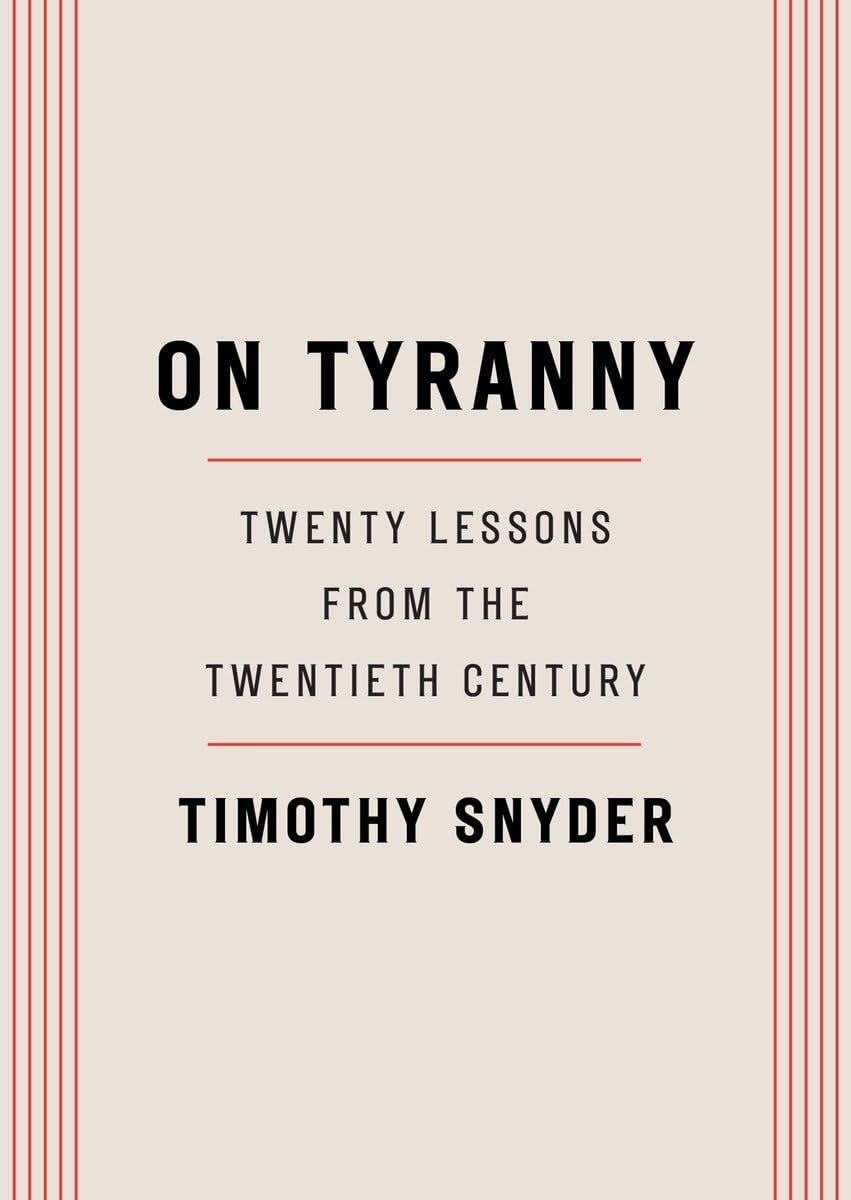
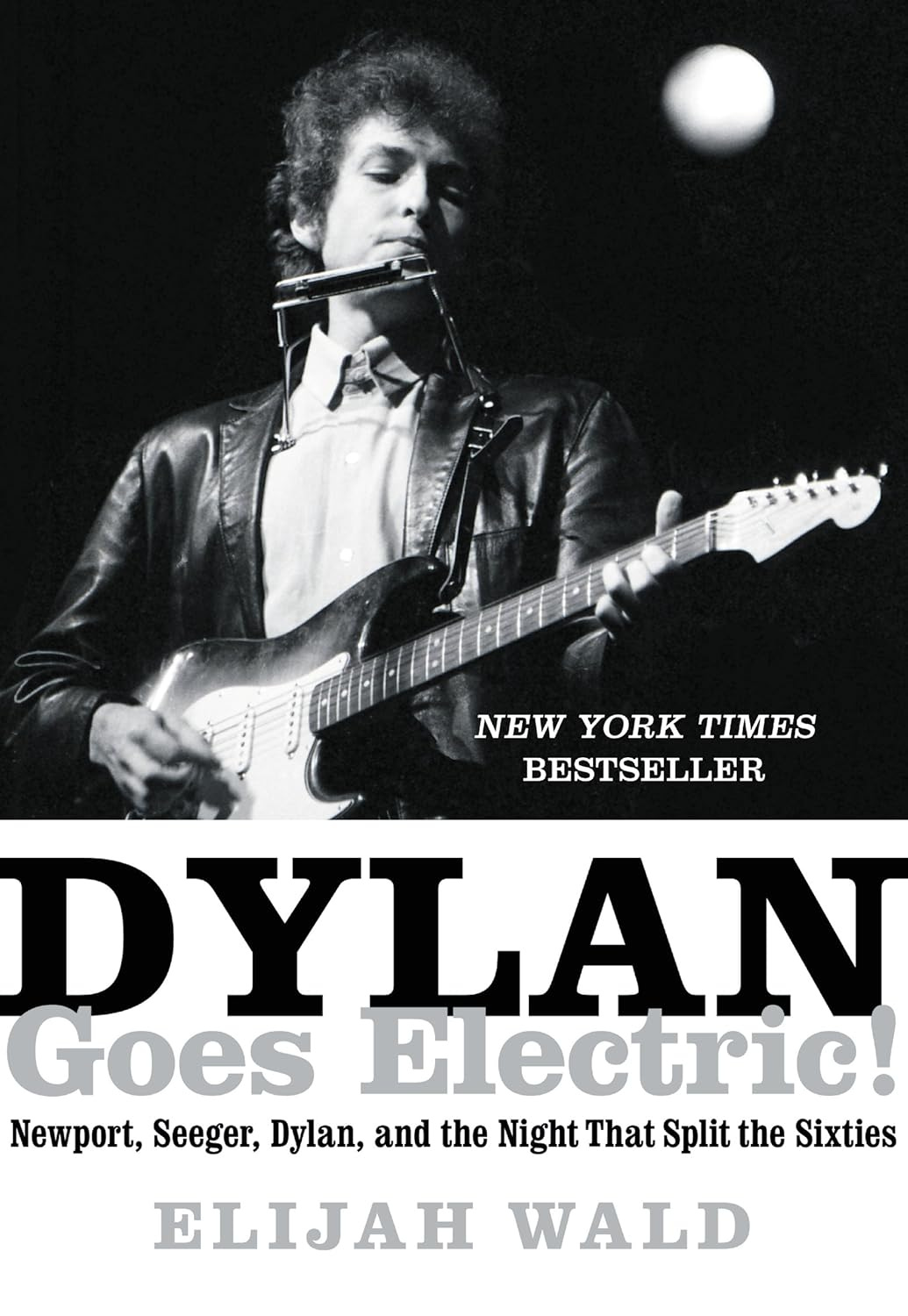
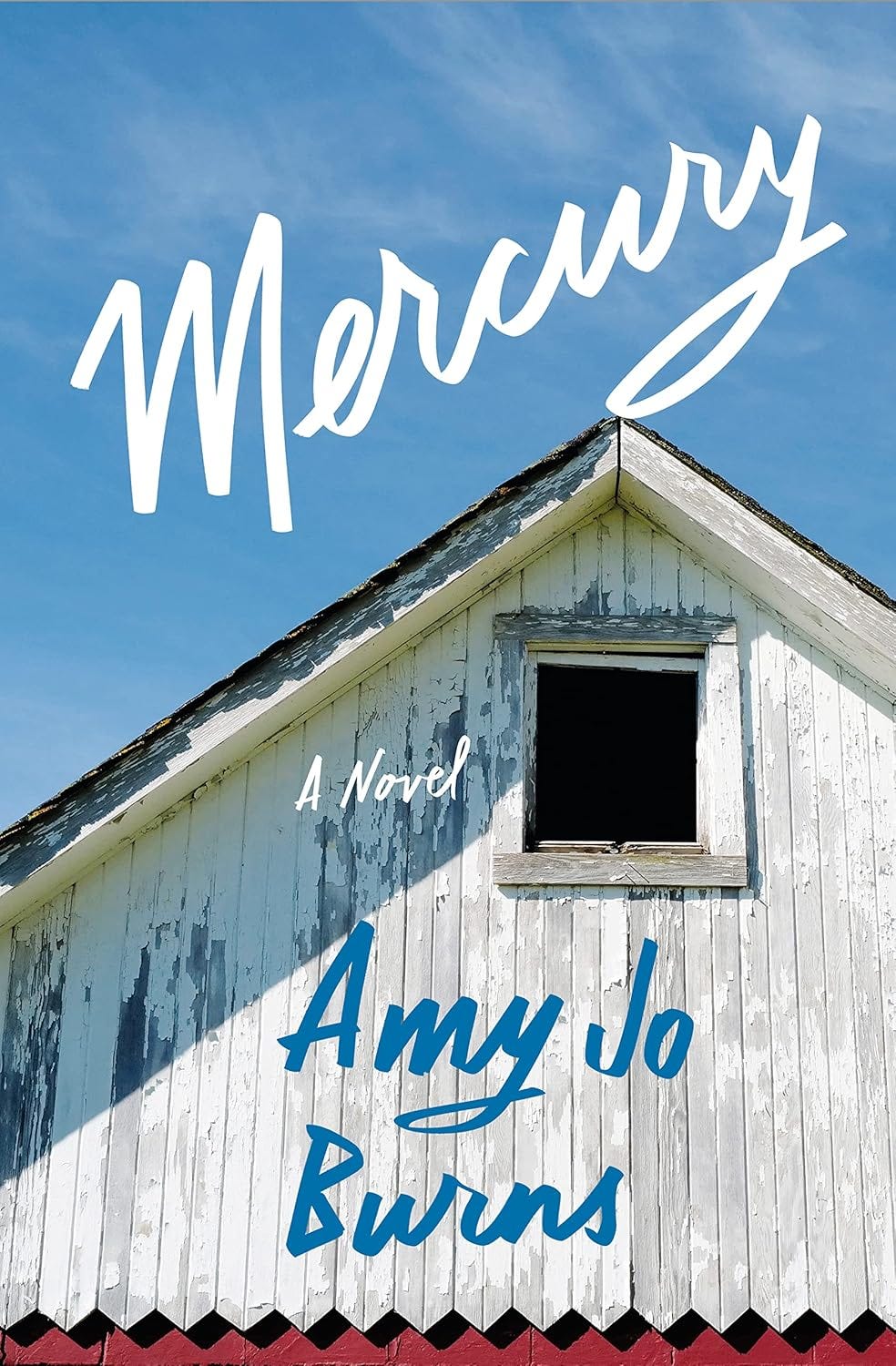
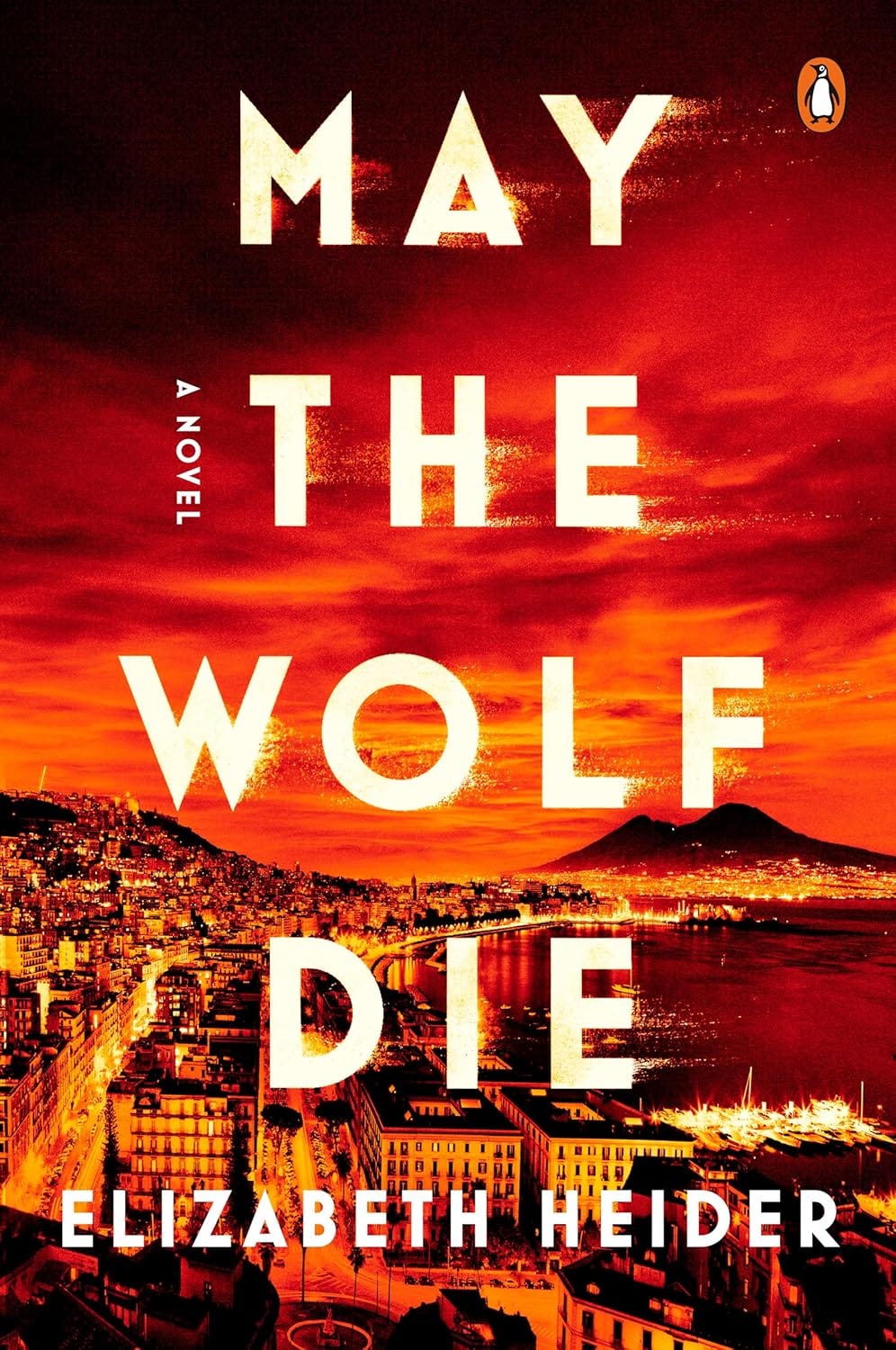
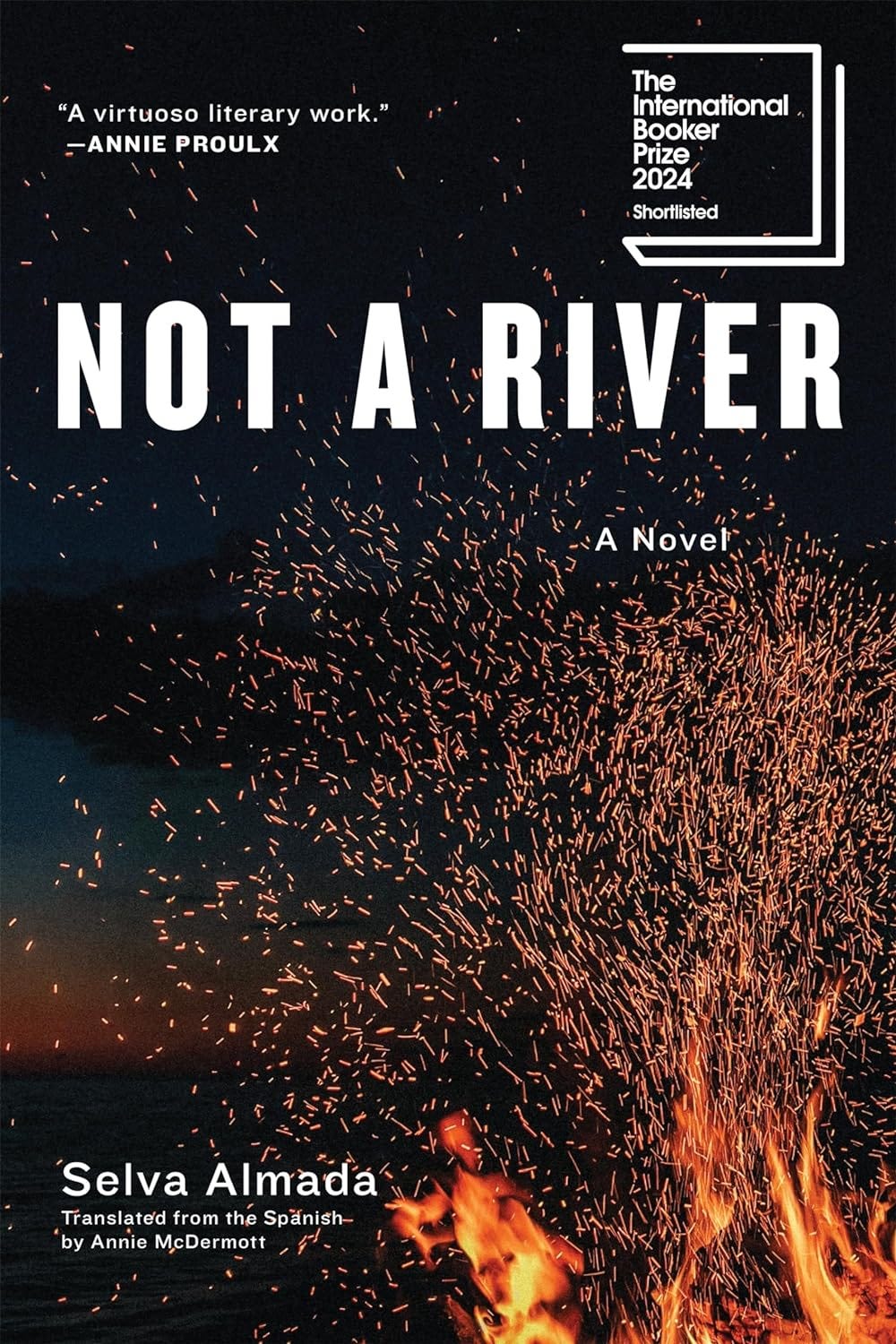
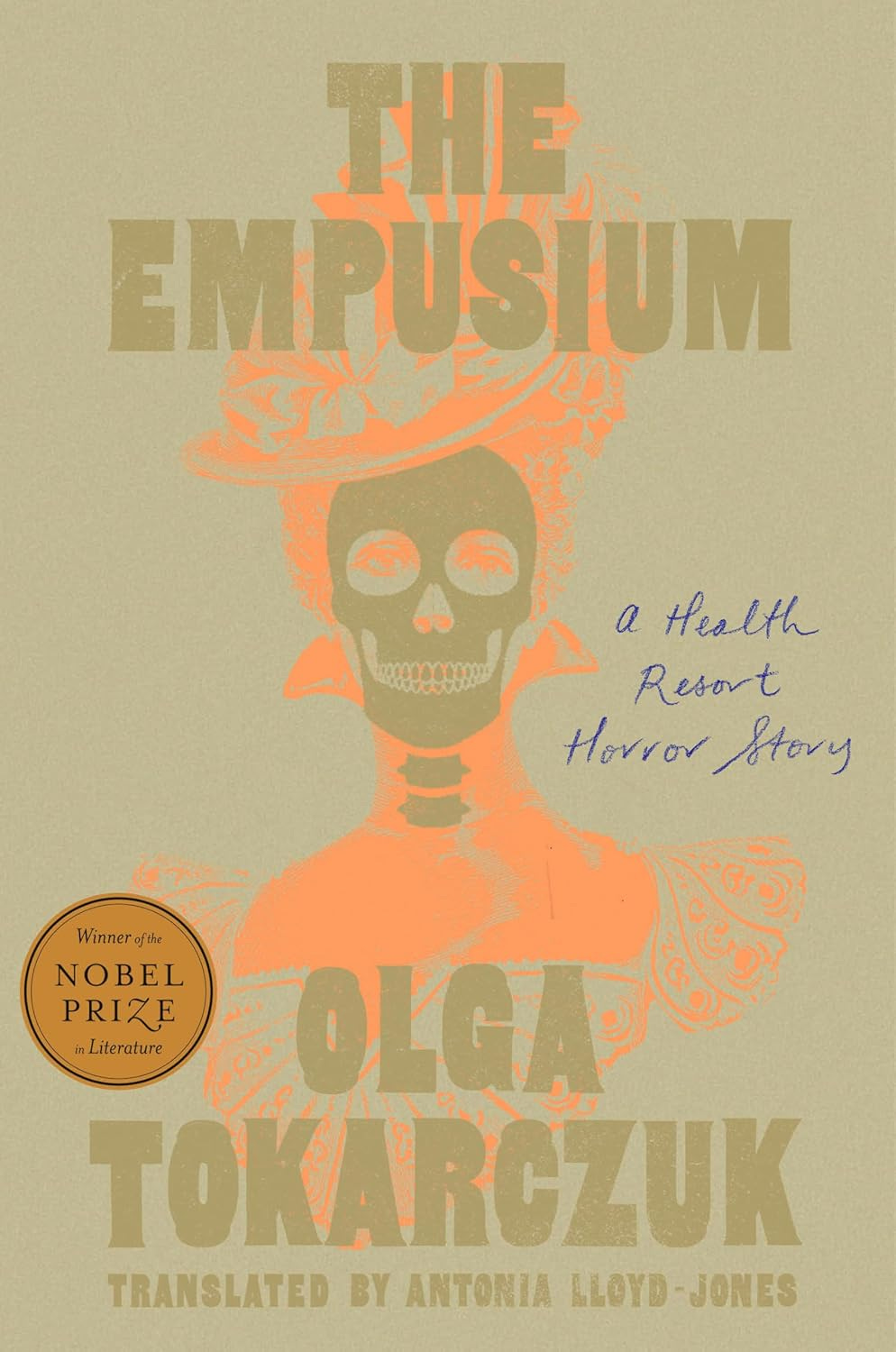
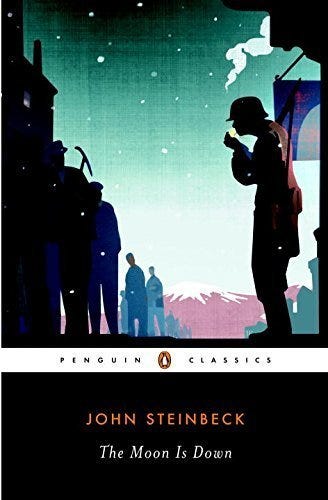
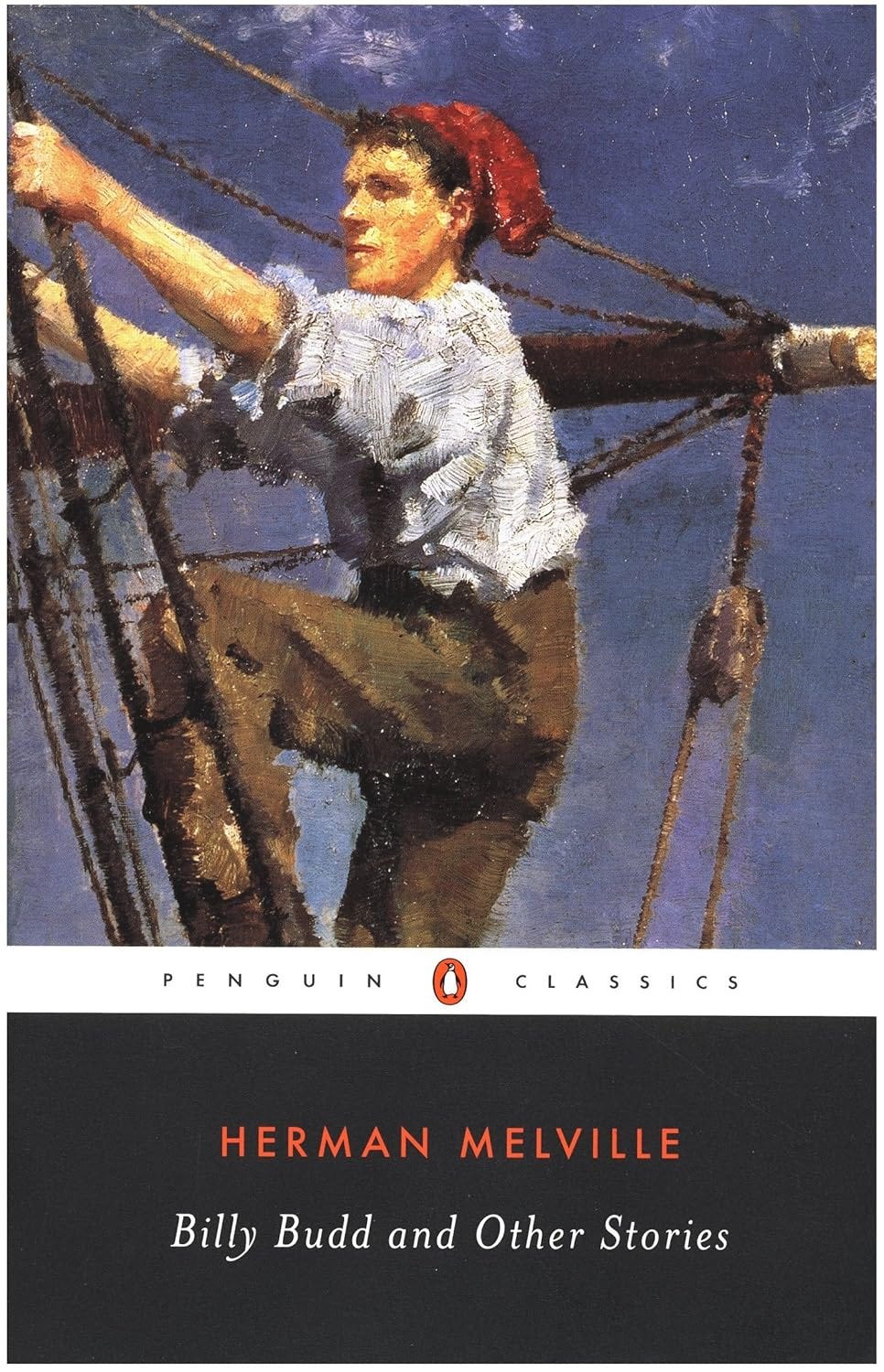
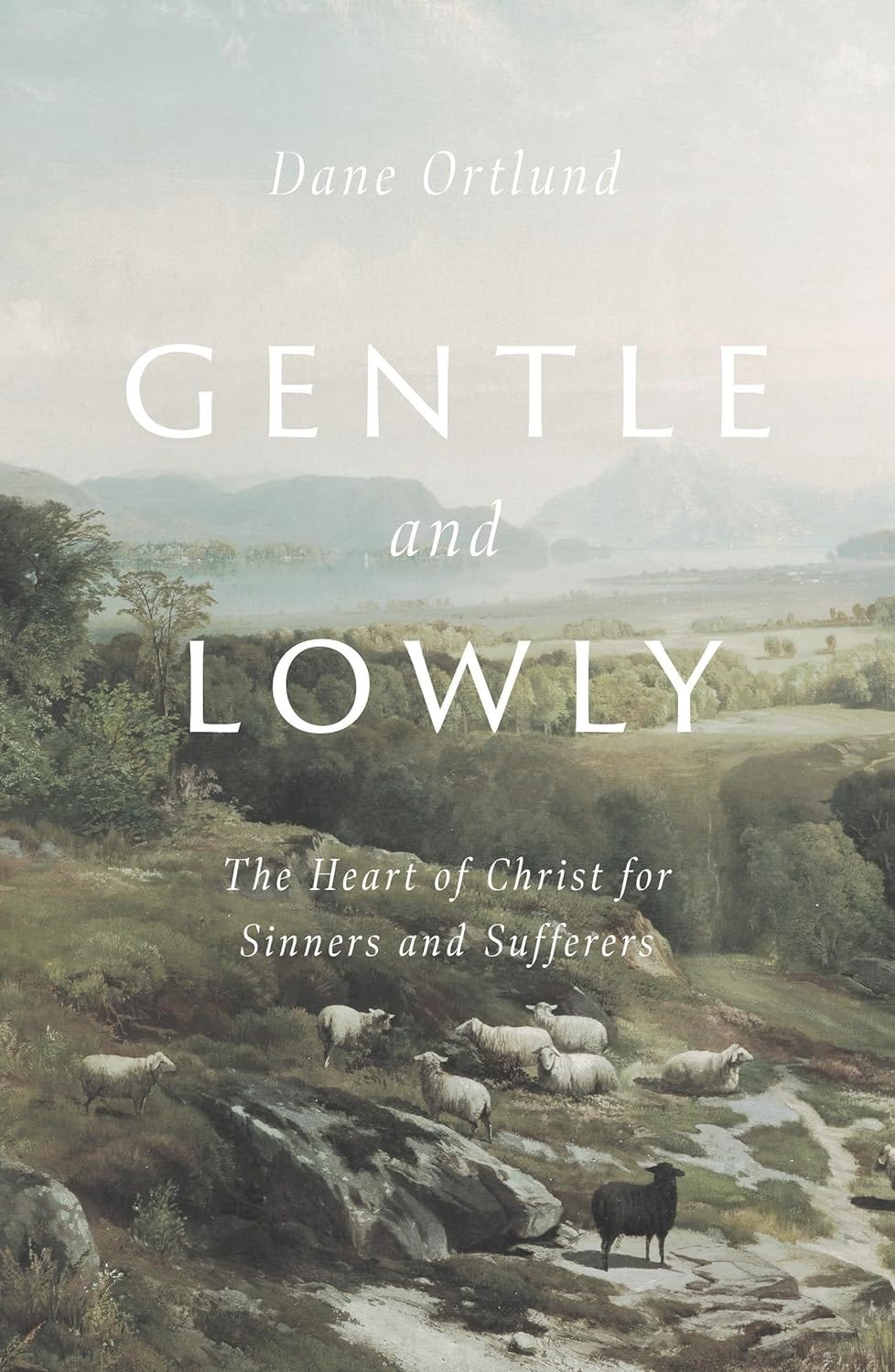
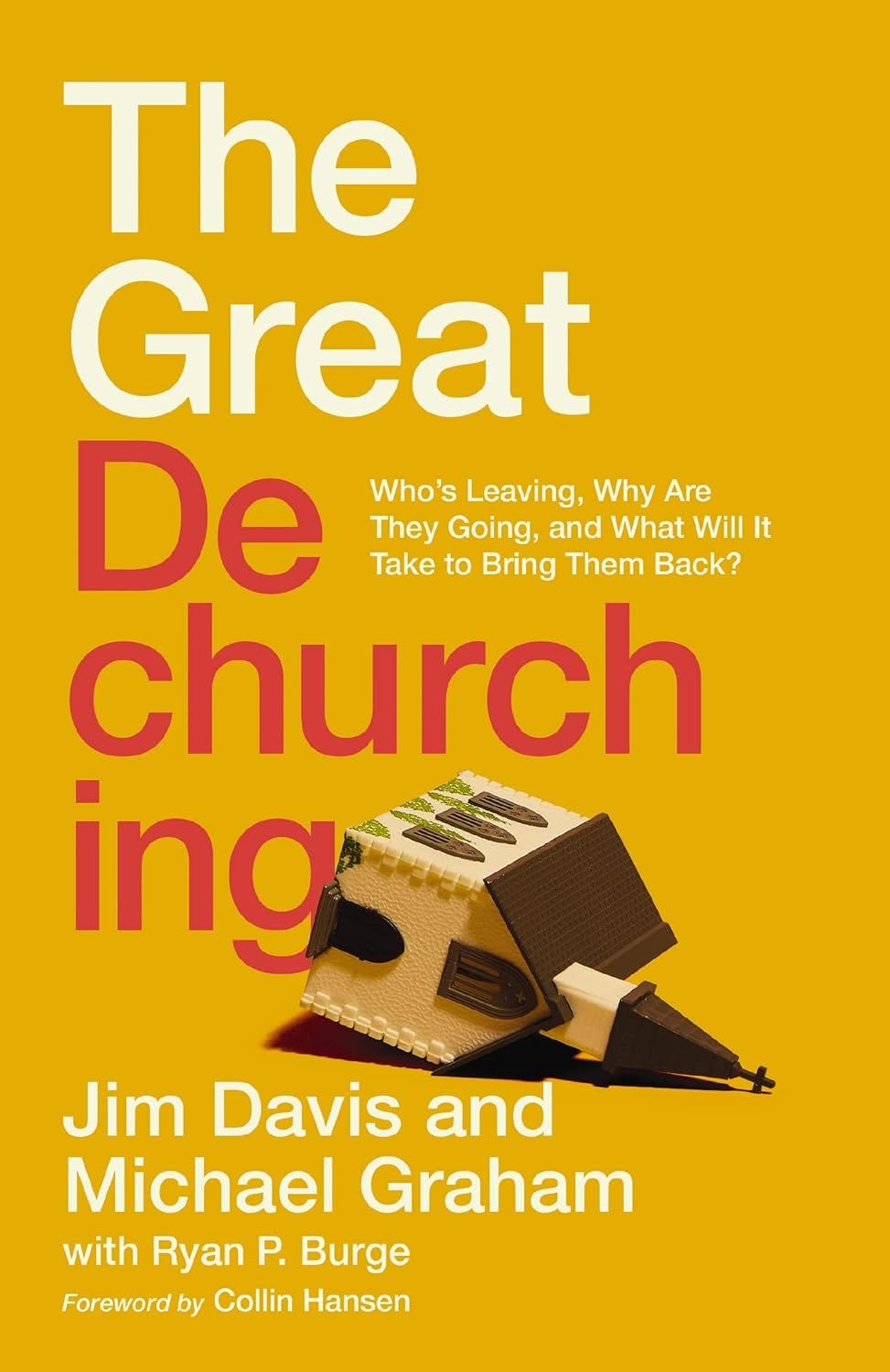
I decided to shop my bookshelf and found The Score by Robert Park/Donald Westlake in a Library of America volume on crime novels. Now I'm hooked!
I've always been curious about The Moon is down. It is one of those war time odd balls that many writers in a war produce which seems an outlier in their work, but says so much about the times. I've been wanting to reread Bartlby for the last few years. I think it's time to take it off the shelf finally.
Read:
* Forbidden Hollywood - Mark Vieira (I'm here for the Film Noir content after all)
* Aftermath - Farley Mowat
* Back to the Local - Maurice Garham
* One Man's Initiation - John Dos Passos